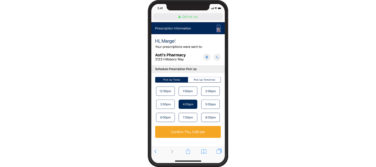As digital technologies become more prevalent in healthcare communications, the risk is exacerbating what is already a de-personalized experience for many people. How can we maintain a human connection amid an increasingly hi-tech patient journey?
One of the most critical areas to examine: Treatment adherence and self-management. Pharma marketers want to support individuals to follow prescribed treatments. To do so, each person needs to understand and be aligned with the prescribed treatment.
It’s no surprise that many individuals are frustrated with what they perceive as a monolithic healthcare system. Factors include a lack of/limited access to their HCP, use of technical jargon and the confusing swirl of the Web. The entry of more technology to reach patients poses a real risk of further eroding the humanizing connection in healthcare. But technology can play a positive role if leveraged in the right way.
If we look at successful platforms for human interaction through technology, they focus around social media. When people are engaging through their devices on Facebook, Instagram or LinkedIn, they have the ability to share with each other, albeit virtually: To add friends, connect, give thumbs up, send emojis and endorse colleagues. Social media shows us that technology can bring people together. What can we learn from that to apply in healthcare, especially in self-management programs?
Clearly, it’s not just about translating current healthcare systems into a digital space. We’re also not humanizing our healthcare well enough in person. It’s more about translating the user-based lessons we’ve learned from other industries and applying them to healthcare.
Leveraging Health Psychology to Humanize Technology
Adherence is a behavior driven by beliefs. In order to change this we need to develop programs that allow the individual to become involved and active—and acknowledge/address their unhelpful beliefs. Technology can be a wonderful tool to create that connection. By looking at industry learnings through the lens of health psychology, we can find ways to authentically engage with the individual via tech tools including:
1. Bring peer-to-peer connections to your digital platform. It’s one thing to build an educational website or app that has lots of information. But the benefits of that approach are limited. People want to feel connected. Can a digital platform be used to build an online community? Is there a place to share real-life stories? People want to learn about the experiences of others who have the same condition and use the same treatment.
2. Create a digital system that is truly proactive. Telling a person to come to the clinic is not an engaging approach. Can you use technology to proactively start a dialogue about their health? Reach out with a call, email or text to check in on how they are feeling about their treatment and other self-management behaviors.
3. Figure out how to integrate technology seamlessly into a person’s daily life. This is especially important in the context of supporting people with chronic conditions that require daily self-management. Digital technology that is truly integrated into daily activities allows self-management to become part of a lifestyle rather than something cumbersome and separate.








